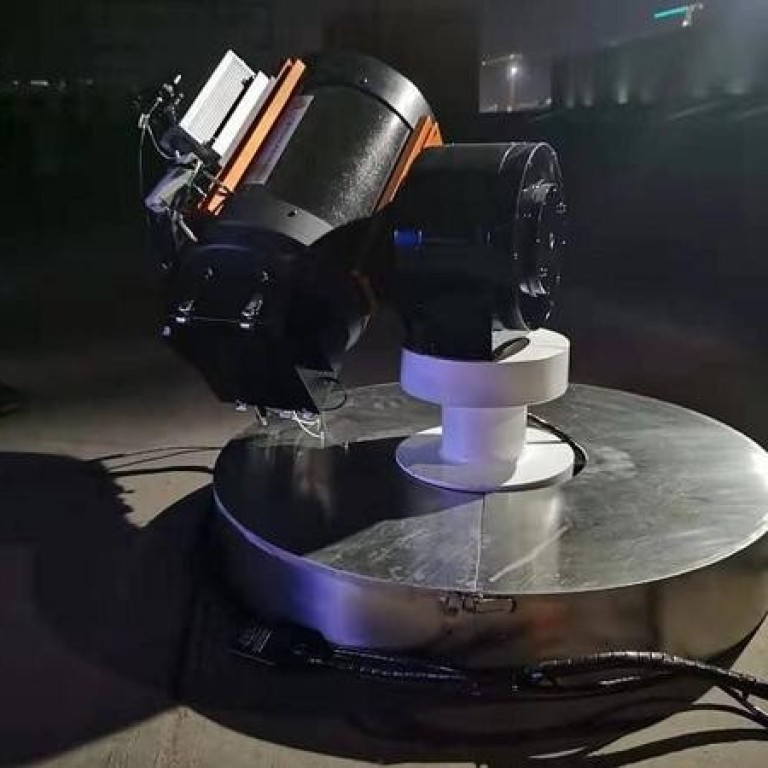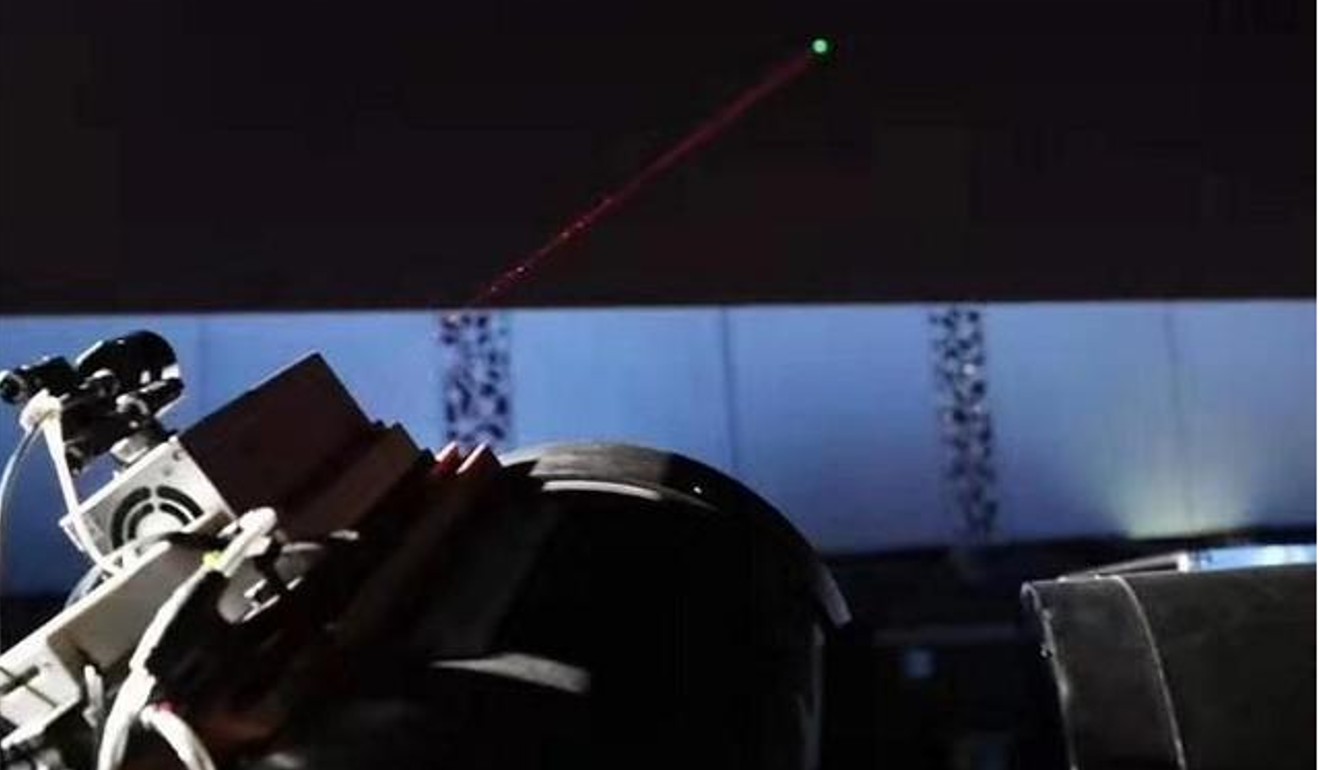
Chinese scientists develop portable quantum satellite communication device
- Weighing in at just 80kg, the machine can connect to China’s quantum satellite and receive encryption keys in the form of entangled light particles
- Breakthrough was made by team at University of Science and Technology of China
Chinese scientists have developed a quantum satellite ground station that is not only capable of sending ultra-secure messages anywhere in the world but also fits inside a family car.
The mobile device, developed by the University of Science and Technology of China, weighs about 80kg (176lbs). With the addition of a 28cm (11 inch) telescope, it can connect to the Chinese Academy of Sciences’ quantum satellite known as Mozi, and receive encryption keys in the form of entangled light particles.
Unlike traditional encryption methods based on mathematics, quantum encryption is protected by the fundamental law of physics. In theory, all information scrambled by encryption algorithms can be cracked by a computer if it is fast enough, but quantum key communication will remain intact because any attempt to eavesdrop will cause a physical change in the message and trigger a security alert to the sender or receiver.
China challenges Google’s Sycamore in quantum computing race
On Monday, the project team and collaborators from the Jinan Academy of Quantum Technology tested the device on a rooftop in Jinan, Shandong province.
It established a near perfect line of light with Mozi using laser beams and, in eight minutes, received quantum keys sufficient for the encryption of a large amount of data for long distance transmission.
The event was reported on Thursday by several Chinese publications, including Science and Technology Daily, a newspaper run by the Ministry of Science and Technology.

The team confirmed the results but declined to comment further, saying full details of the test were being prepared for publication in a peer-reviewed journal at a later date.
Shi Yipeng, a professor of physics at Peking University who was not involved in the project but specialises in space-based quantum technology, described the test as a “significant achievement”.
The mini ground station “will play a critical role in the application of quantum communication technology in scenarios that previously existed only in our imaginations”, said Shi, who is also deputy director of the university’s department of aeronautics and astronautics.

Concerns about information privacy are growing. The Prism project exposed by former National Security Agency contractor Edward Snowden, for instance, allowed the US government to tap into phone calls around the world that were supposedly scrambled.
The situation started to change with the launch by China in 2016 of the world’s first quantum satellite. Named after the ancient Chinese philosopher and scientist Mozi, the satellite enabled Chinese and European scientists to make video calls that could not be infiltrated by Prism or other digital espionage programs.
But the equipment that was used to receive the signals from the quantum satellite was bulky. China, for instance, built five ground stations to house the hardware that had a combined weight of more than 10 tonnes. They also required telescopes with diameters exceeding a metre to establish and maintain contact with the satellite.
“Worst of all, it pinned the recipient to one location. In real life, many potential users are on a moving platform,” Shi said.
China’s space programme back on track with Long March launch
Although the new portable station opened the gateway to quantum satellite communication for homes and businesses, it would most likely first be used by the military, Shi said.
“It will fit in a plane or submarine,” he said.
It is also not known when the new device will be available on the international market, but according to the Science and Technology Daily report, the researchers are seeking ways to commercialise the technology.
“China is undoubtedly taking a lead position in this field,” Shi said.
The global competition on quantum technology is heating up, especially between China and the US. The consensus in the research community is that while the US is a step ahead in the field of quantum computing, China has the lead on quantum communication.
Strider, a security company based in Washington, whose board members include a former senior counter-intelligence official with the FBI, has accused Chinese quantum researchers of working with the Chinese military and suggested they be banned from working with US scientists.
Meanwhile, the US Air Force is funding research by civilian institutes, including Stanford University, into long distance quantum communication technology, according to the university’s website.
The US Army funded a similar project with the University of Innsbruck to develop quantum internet for “military security, sensing, and timekeeping capabilities not possible with traditional networking approaches”, according to a statement by the US Army Research Laboratory in September last year.

